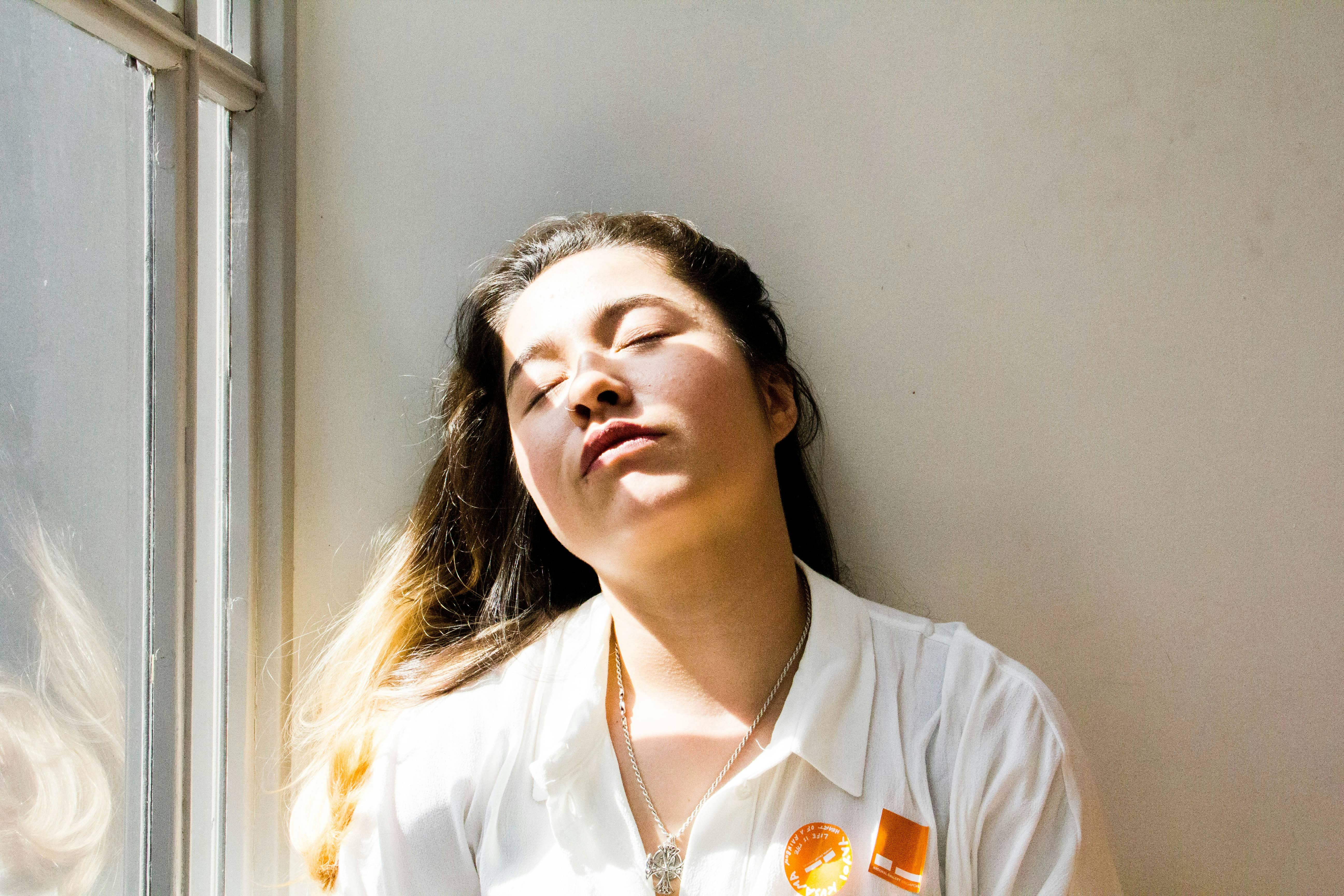
Let’s talk about something many women feel but rarely name: hormonal burnout. That feeling when no amount of sleep, supplements or self-care routines seem to help. When your skin is breaking out for no reason, your hair starts thinning, your moods swing like a pendulum, and you’re just flat-out exhausted.
Hormonal burnout is what happens when your body has been running on adrenaline and stress hormones for too long without adequate recovery. It’s not just about being tired. It’s a deeper kind of depletion that impacts your nervous system, immune system, digestion, skin, scalp, and hormones.
If you’ve been pushing through, telling yourself to "just get on with it," this blog is your gentle reminder that burnout isn't a badge of honour. These are 4 early signs your body might be heading towards hormonal burnout – and what to do about it.
1. You’re Waking Up Exhausted, Even After a Full Night’s Sleep
You got to bed on time. You stayed asleep. But you still feel foggy, flat, and fatigued when your alarm goes off. Sound familiar?
This is one of the hallmark signs that your circadian rhythm – your body’s internal clock – is out of whack. Your adrenal glands (which produce stress hormones like cortisol) should give you a gentle cortisol rise in the morning to help you feel awake and alert. But when you’ve been running on empty for too long, that rhythm gets disrupted.
Over time, your body stops producing that morning lift and instead struggles to get going – even after 8+ hours of sleep. It’s a red flag for adrenal dysregulation and hormonal imbalance.
Supportive tip: Start your day with sunlight exposure, protein-rich breakfast, and avoid coffee before food. These small shifts can help reset your cortisol rhythm. You’ll find a full morning and evening routine guide inside the Foundations of Health Guide.
2. You Feel Wired But Tired – Especially in the Evenings
You’re dragging your feet all day, but when bedtime rolls around, suddenly your brain kicks into overdrive. You're restless, wired, and wide awake when you should be winding down.
This "wired but tired" sensation often stems from elevated evening cortisol – a common response to long-term stress. Your body has been in survival mode for so long that it forgets how to switch off. This not only disrupts your sleep but also affects your skin (especially if you’re dealing with acne, rosacea or eczema), as poor sleep impairs detox pathways and increases inflammation.
Supportive tip: Create a calming evening ritual. Think: dim lights, magnesium foot baths, tech-free time, and herbal teas like chamomile or lemon balm. Consider reducing alcohol and sugar after 6pm as these can also spike cortisol and disrupt your wind-down window.
3. You’re Experiencing Cycle Changes or PMS That’s Worse Than Usual
Maybe your cycle used to be pretty predictable, but now it's suddenly shorter, longer, or missing altogether. Or your PMS symptoms are more intense – think mood swings, bloating, breast tenderness, or even increased skin breakouts.
These are clues that your hormone balance is shifting. When stress is high and adrenal function is taxed, your body diverts resources away from producing reproductive hormones like progesterone. Low progesterone (often dubbed the "calming hormone") can make PMS symptoms feel amplified, and can also worsen skin flare-ups and scalp inflammation.
Supportive tip: Nourish your body with healthy fats, reduce inflammatory foods like sugar and caffeine, and support your liver – it plays a key role in hormone clearance. Castor oil packs and bitter greens are beautiful here. For more, see the detox section of the Foundations of Health Guide.
4. You’re Breaking Out More (or Losing More Hair) Than Usual
Hormonal shifts are often written all over our skin and scalp. If you’re suddenly experiencing cystic acne, oilier skin, or thinning hair along the hairline or crown, it could be due to an increase in androgens (testosterone and DHT). This is often your body’s way of compensating when progesterone is low or when your body is under chronic stress.
Excess androgens can overstimulate the sebaceous glands, leading to blocked pores and inflammation. They also impact hair follicles, shortening the hair growth cycle and leading to more hair shedding.
Supportive tip: Reduce inflammatory foods, prioritise blood sugar balance (hint: pair carbs with protein), and gently support detoxification. If you’re struggling to know where to start, check out the Nutrition Guide.
In Summary
Hormonal burnout doesn’t happen overnight. It builds slowly, through months (or years) of stress, undernourishment, and go-go-go living. The good news? Your body is incredibly intelligent. These early signs are its way of whispering for help before it starts to scream.
Healing starts with listening. Then comes the gentle, consistent changes that support your body to feel safe again.
Ready to bring your hormones back into balance? Grab your copy of the Foundations of Health Guide or book a 1:1 consultation to create a personalised path forward.





